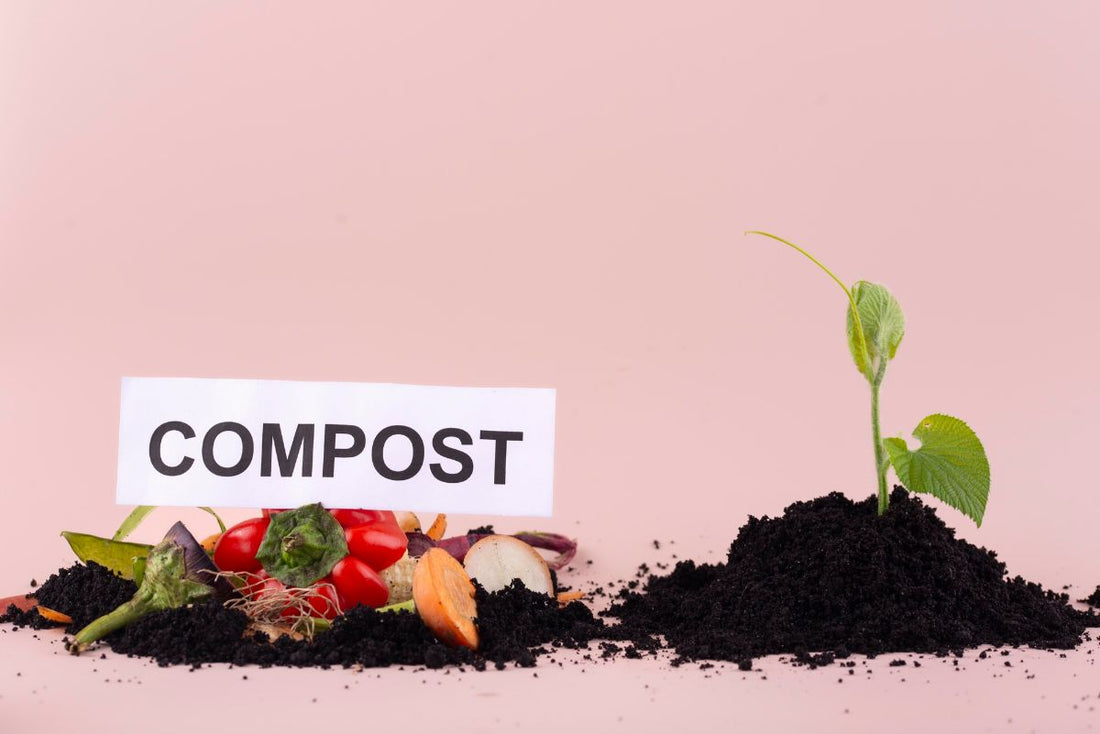Why and How to Start Composting

Composting is a simple yet powerful way to reduce waste, enrich soil, and contribute to a healthier planet. While it may seem like a small step, the impact of composting is significant. It helps to divert organic waste from landfills, reduces greenhouse gas emissions, and creates nutrient-rich soil for your gardens and landscaping, your flower will never look the same after you try it.
In this article, we'll explore why you should start composting and provide a beginner's guide on how to get started.
Why Compost?
1. Reduce Waste:
The first benefit of composting is that it diverts waste from filling up landfills. This is due to the fact that compost is made from waste - food scraps, organic byproducts, and other things – that would otherwise be rotting unproductively in landfills. In fact, organic waste makes up a substantial portion of household and catering industry trash. Composting allows you to save kitchen scraps and garden waste from the landfill, reducing the overall trash you generate, in addition to creating a beautiful and lush garden.
2. Improve Soil Quality:
Compost benefits the soil in many different ways. It enriches the ground with essential nutrients and beneficial microbes, which increases nutrient availability to plants and also leads to increased humus formation. This process creates ideal soil for gardening and landscaping. It improves its structure, water retention, and aeration, leading to plants that are healthier and grow faster. Moreover, compost also makes the ground better on a chemical basis. It does this by binding heavy metals and chemicals, making them less available to be uptake by plants where they could enter human and animal populations.
3. Save Money:
Composting can reduce the need for chemicals and fertilizers, saving you money on gardening and landscaping costs. In addition, compost saves more money by retaining water in the soil thereby reducing irrigation costs.
4. Conserve Resources:
Composting decreases the demand for non-renewable resources used in gardening and landscaping, which helps conserve natural resources. In particular, through increased absorption, compost helps soil to maintain more water on the site for productive use. This prevents it from flowing off the land. Moreover, when water soaks into the soil better, it transfers more efficiently within the soil as well, reducing the extra need for it.
5. Reduce Greenhouse Gas Emissions:
Compost is made of organic waste, that if left to rotten in the landfill produces a potent greenhouse gas called methane which is 28-34 times more damaging than carbon dioxide. Composting reduces these emissions, mitigating the impact of climate change. Instead of wasting this “black gold”, compost puts it to good use where it can benefit the environment.
How to Start Composting
1. Choose a Composting Method:
• Backyard Composting: If you have outdoor space, consider setting up a compost pile or bin. Choose a dry, shady spot with good drainage. You can purchase compost bins or make your own with wood, wire, or other materials. Keep the area around it clean, since it can attract small rodents and insects.
• Indoor Composting: If you live in an apartment or lack outdoor space, you can still compost indoors using a worm bin or a specialized indoor composter designed to handle food scraps.
• Outsource: If you are not able to compost your own organic waste look for your local compost service. The company will regularly pick up your trash and the compost product will be donated to your local community and you might get a part of it (depending on your provider).
Pro tip: If you live in UAE check out WIN Sustainably compost partner ChefsEye.
2. Gather Composting Materials:
• Browns: These are carbon-rich materials like dry leaves, straw, newspaper, and cardboard. Browns provide structure and balance to your compost pile.
• Greens: These are nitrogen-rich materials like fruit and vegetable scraps, coffee grounds, and grass clippings. Greens provide the nutrients that help break down the compost.
• Water: Maintain the moisture level in your compost pile similar to a damp sponge. Water helps microbes break down the organic matter. However, do not use it too much or you can ruin the quality of the soil.
• Air: Aerate your compost pile by turning it regularly or using a compost aerator. Oxygen is essential for the decomposition process.
3. Composting Do's and Don'ts:
• Do: Add a variety of materials, including kitchen scraps, garden waste, and shredded paper. In order to get the best quality soli keep the compost pile balanced with roughly equal amounts of greens and browns.
• Do: Monitor the moisture level and adjust as needed. The compost should be damp but not soggy.
• Don't: Avoid adding diseased plants, meat, dairy, and pet waste to your compost pile, as they can attract pests and bad bacteria.
• Don't: Skip turning or aerating your compost pile regularly. This helps ensure even decomposition.
4. Patience and Maintenance:
• Composting is a gradual process, and it may take several months to a year for your compost to mature. Be patient and continue to add materials and aerate them regularly, the result is guaranteed.
• Once your compost is ready, it will be dark, crumbly, and have an earthy smell. You can use it to enrich your garden soil and see your plants flourish like they never did before.
In conclusion, composting is a sustainable and eco-friendly practice that anyone can adopt. Not only reduces waste but also provides numerous benefits for your garden and the environment. So, whether you have a sad and empty backyard or a small apartment, consider starting your composting journey today. It's a small step that can make a big difference in the quest for a greener, healthier planet.
WIN Sustainably now connects food businesses with composting companies, preventing unsold food items from reaching landfills and promoting sustainability. Composting, is crucial for reducing waste and conserving resources for a greener future.